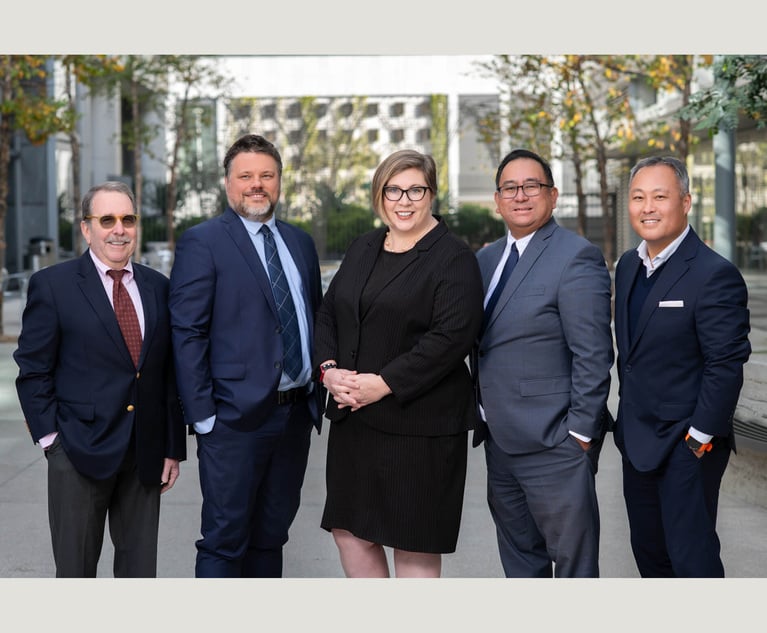California Public Employees Retirement System v. ANZ Securities, Inc.
U.S. Sup. Ct.; 16–373 Section 11 of the Securities Act of 1933 gives purchasers of securities “aright of action against an issuer or designated…
June 26, 2017 at 07:28 PM
8 minute read
U.S. Sup. Ct.;
16–373
Section 11 of the Securities Act of 1933 gives purchasers of securities “aright of action against an issuer or designated individuals,” including securities underwriters, for any material misstatements or omissions in a registration statement. Omnicare, Inc. v. Laborers Dist. Council Constr. Industry Pension Fund, 575 U. S. ___, ___; see 15 U. S. C. §77k(a). Section 13 provides two time limits for §11 suits. The first sentence states that an action “must be brought within one year after the discovery of the untrue statement or the omission, or after such discovery should have been made by the exercise of reasonable diligence . . . .” The second sentence provides that “[i]n no event shall any such action be brought . . . more than three years after the security was bona fide offered to the public . . . .” §77m.
In 2007 and 2008, Lehman Brothers Holdings Inc. raised capital through several public securities offerings. Petitioner, the largest public pension fund in the country, purchased some of those securities; and it is alleged that respondents, various financial firms, are liable under the Act for their participation as underwriters in the transactions. In 2008, a putative class action was filed against respondents in the Southern District of New York. The complaint raised §11 claims, alleging that the registration statements for certain of Lehman's 2007 and 2008 securities offerings included material misstatements or omissions. Because the complaint was filed on behalf of all persons who purchased the identified securities, petitioner was a member of the putative class.
This content has been archived. It is available through our partners, LexisNexis® and Bloomberg Law.
To view this content, please continue to their sites.
Not a Lexis Subscriber?
Subscribe Now
Not a Bloomberg Law Subscriber?
Subscribe Now
NOT FOR REPRINT
© 2025 ALM Global, LLC, All Rights Reserved. Request academic re-use from www.copyright.com. All other uses, submit a request to [email protected]. For more information visit Asset & Logo Licensing.
You Might Like
View All
Withers Hires Lawyers, Staff From LA Trusts and Estates Boutique

Legal Tech Startups That Google-backed Venture Firms Invested in Throughout 2024

As AI-Generated Fraud Rises, Financial Companies Face a Long Cybersecurity Battle

Supreme Court allows investors' class action to proceed against microchip company Nvidia
3 minute readTrending Stories
- 1Departing Attorneys Sue Their Former Law Firm
- 2Pa. High Court: Concrete Proof Not Needed to Weigh Grounds for Preliminary Injunction Order
- 3'Something Else Is Coming': DOGE Established, but With Limited Scope
- 4Polsinelli Picks Up Corporate Health Care Partner From Greenberg Traurig in LA
- 5Kirkland Lands in Phila., but Rate Pressure May Limit the High-Flying Firm's Growth Prospects
Who Got The Work
J. Brugh Lower of Gibbons has entered an appearance for industrial equipment supplier Devco Corporation in a pending trademark infringement lawsuit. The suit, accusing the defendant of selling knock-off Graco products, was filed Dec. 18 in New Jersey District Court by Rivkin Radler on behalf of Graco Inc. and Graco Minnesota. The case, assigned to U.S. District Judge Zahid N. Quraishi, is 3:24-cv-11294, Graco Inc. et al v. Devco Corporation.
Who Got The Work
Rebecca Maller-Stein and Kent A. Yalowitz of Arnold & Porter Kaye Scholer have entered their appearances for Hanaco Venture Capital and its executives, Lior Prosor and David Frankel, in a pending securities lawsuit. The action, filed on Dec. 24 in New York Southern District Court by Zell, Aron & Co. on behalf of Goldeneye Advisors, accuses the defendants of negligently and fraudulently managing the plaintiff's $1 million investment. The case, assigned to U.S. District Judge Vernon S. Broderick, is 1:24-cv-09918, Goldeneye Advisors, LLC v. Hanaco Venture Capital, Ltd. et al.
Who Got The Work
Attorneys from A&O Shearman has stepped in as defense counsel for Toronto-Dominion Bank and other defendants in a pending securities class action. The suit, filed Dec. 11 in New York Southern District Court by Bleichmar Fonti & Auld, accuses the defendants of concealing the bank's 'pervasive' deficiencies in regards to its compliance with the Bank Secrecy Act and the quality of its anti-money laundering controls. The case, assigned to U.S. District Judge Arun Subramanian, is 1:24-cv-09445, Gonzalez v. The Toronto-Dominion Bank et al.
Who Got The Work
Crown Castle International, a Pennsylvania company providing shared communications infrastructure, has turned to Luke D. Wolf of Gordon Rees Scully Mansukhani to fend off a pending breach-of-contract lawsuit. The court action, filed Nov. 25 in Michigan Eastern District Court by Hooper Hathaway PC on behalf of The Town Residences LLC, accuses Crown Castle of failing to transfer approximately $30,000 in utility payments from T-Mobile in breach of a roof-top lease and assignment agreement. The case, assigned to U.S. District Judge Susan K. Declercq, is 2:24-cv-13131, The Town Residences LLC v. T-Mobile US, Inc. et al.
Who Got The Work
Wilfred P. Coronato and Daniel M. Schwartz of McCarter & English have stepped in as defense counsel to Electrolux Home Products Inc. in a pending product liability lawsuit. The court action, filed Nov. 26 in New York Eastern District Court by Poulos Lopiccolo PC and Nagel Rice LLP on behalf of David Stern, alleges that the defendant's refrigerators’ drawers and shelving repeatedly break and fall apart within months after purchase. The case, assigned to U.S. District Judge Joan M. Azrack, is 2:24-cv-08204, Stern v. Electrolux Home Products, Inc.
Featured Firms
Law Offices of Gary Martin Hays & Associates, P.C.
(470) 294-1674
Law Offices of Mark E. Salomone
(857) 444-6468
Smith & Hassler
(713) 739-1250






